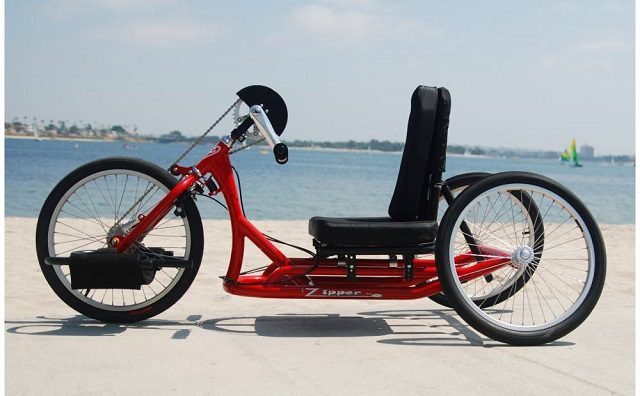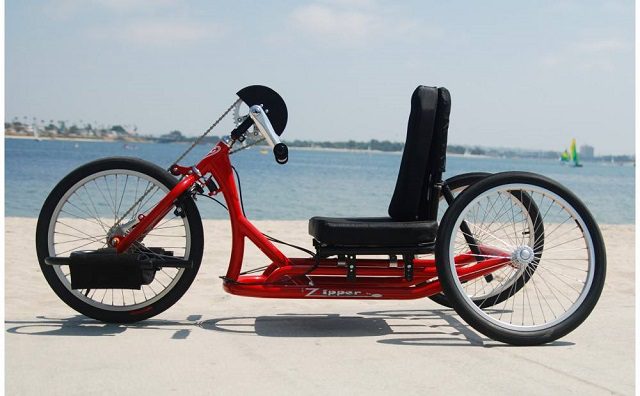Dartmouth, Nova Scotia man launches fundraising campaign to buy handbikes for disabled children
For Joseph Robichaud, the loss of a leg during his childhood to cancer taught him the inestimable value of mobility.

For Joseph Robichaud, the loss of a leg during his childhood to cancer taught him the inestimable value of mobility. In that spirit, the Dartmouth, Nova Scotia man wants to extend the gift of bike-mounted freedom to the disabled, specifically children.
To that end, he’s started a fundraising initiative, the CycleAbility Challenge, to provide many of them with handbikes.
Handbikes, of course, are well-known to the world’s paracyclists. For those who have lost the use of their legs, the design of a handbike—recumbent bikes with pedals that are cranked by hand rather than by foot, as per the name—provides its occupant with the ability to ride freely, regardless of their disability.
In professional competition, a handbike is used by riders with classifications based on lower limb impairment, designated by the letter “H.” H1, for example, is used by tetrapegics, H2 is for tetraplegics with minor limb impairment, H3 and H4 are both for paraplegics, and H5 is for athletes who can kneel on a handcycle, something that applies to both paraplegics and amputees.
Robichaud, in wanting to give the differently-abled the freedom of a bike, has that design at the heart of his philanthropy. His plan is to give them to disabled kids all across Nova Scotia, the CBC reports.
His reasons for wanting to spearhead such an initiative, he told reporters, has its roots in the feeling that he couldn’t partake in the same fun that his friends and family did as a child, all out riding their bikes. “My brother and buddies,” Robichaud told the CBC, “were out there riding their bicycles and I really wanted to be out there with them, but I couldn’t be.” At 12 years of age, Robichaud lost one of his legs to fibrosarcoma. This being 1963, however, his options when it comes to cycling were severely limited. The first handcycle for wheelchair athletes wouldn’t be invented until the late 1980s, when Robichaud was in his 40s. What inspires the CycleAbility Challenge, no doubt, is the resolve to ensure that disabled youth today have more options than he did.
A significant hurdle, however, is the price of such equipment. Handbikes can cost up to $5,000, with $1,200 being an average cost. Hence the fundraising.
“There are thousands of cyclists,” Robichaud said. “Why not create a challenge among cycle shops and adults?” That, in short, is exactly what his campaign is all about. Supported by the IWK Foundation, the initiative invites bike shops and bike clubs t get involved, challenging other clubs to raise the capital needed to buy as many of these bikes as possible.
“Your role,” the CycleAbility Challenge website reads, “is to be the top fundraiser amongst all bicycle shops and clubs in Nova Scotia. Please encourage all of your club members to promote fundraising on behalf of this event. Be creative in your ideas related to your choosing your cycle route and distance in order to become the ‘Top Club Fundraiser.'”


